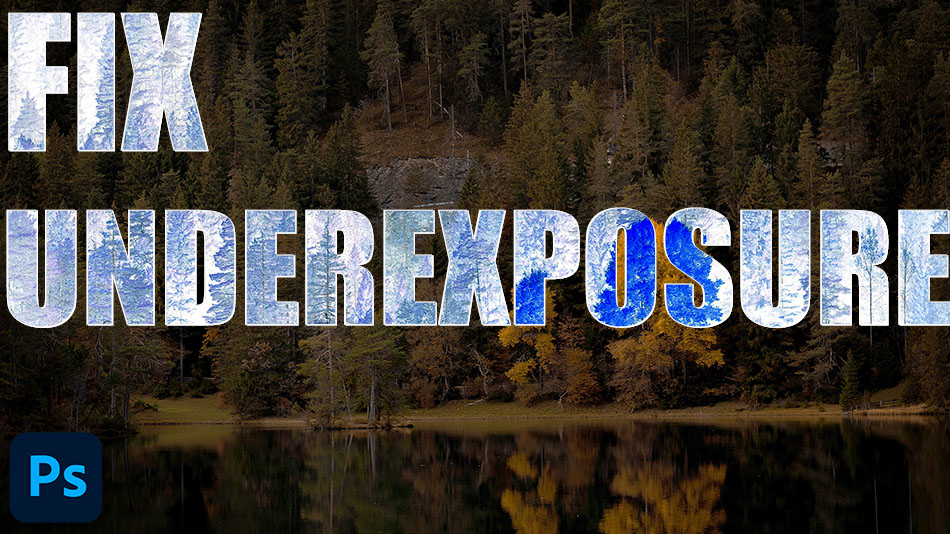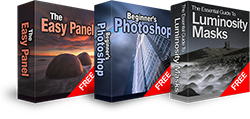How To Rescue Undersaturated Photos in Photoshop Without Using Lightroom or ACR
Knowing how to rescue undersaturated photos in Photoshop can be really useful. As is often the case in Photoshop, there’s more than one way to do this. The most obvious way is by using the Camera Raw Filter. Don’t get me wrong, Camera Raw is great! especially if you shoot in RAW. One of the good things about using this method is that because the whole process is carried out within Photoshop it’s really fast, so your computer doesn’t require masses of processing power. This method also gives us a softer edit than ACR which sometimes increases noise when we try to recover information without metadata from RAW files. Below we explain some of the science behind this method and further down you can find our step-by-step guide.
If you wish to experiment with this, I would really appreciate it if you included my name (Duke McIntyre) and www.shutterevolve.com when you publish your image. If you post your published image on our Facebook page I’d be happy to check it out.
The Science Behind Recovering Under Exposed Images
Underexposure can happen for a number of reasons, most commonly when shooting in low light, but also in error by:
- Your ISO settings are too low
- The exposure time not being long enough
- Not applying the correct calculations when using ND filters
Fortunately, Photoshop has a plethora of tools that can help to recover underexposed areas in images.
The best advice is to always shoot in RAW if that’s an option for you. The reason being is that RAW files capture a huge amount of metadata. This RAW data can be accessed and recovered in Lightroom and Adobe Camera Raw(ACR). If you only shoot in JPEG then this information isn’t available and Lightroom and ACR use AI to make calculated adjustments. The method shown here doesn’t use AI, just predefined algorithms. Inverting the colour tones then allows us to mix colours from a base or underlying layer with colours of another. Where the tonal values differ the inverted colours mix, this, in turn, brightens dark tones and darkens bright tones. Because this mixes colours, black, white, and 50% grey are unaffected. The use of a luminosity mask is a sure-fire way to ensure the underexposed areas are targeted without messing with the correctly exposed elements.
-Tutorial Continued Below-
How To Rescue Undersaturated Photos in Photoshop
1. Select the layer that you want to work with by left-clicking on it in the layers panel.
2. Next you need to left-click on the Layer menu.
3. When the options appear select Duplicate Layer.

4. You don’t need to change anything in the Duplicate Layer dialogue box, so just click OK.

5. Go back to the Layer menu and click on it, but this time, hover over the Add New Adjustment Layer option.

6. When the sub-menu appears select Invert.

7. Again you don’t need to change any of these settings so just click OK.

8. Right-click on the new Invert layer to bring up some layer options.
9. Choose the Merge Down option to merge the adjustment layer with your duplicated layer.

10. Open the InstaMask panel from Raya Pro which I have as a clickable icon in my sidebar, but you might have in your Extensions or Plugin menus.

11. Click on the number 4 in the B (Brights) row to make a brights 4 mask.

12. Left-click on the duplicated and inverted layer in the layers panel to select it.

13. Go back to the InstaMask panel and click on Apply to apply the luminosity maks to your layer.

14. Now open the Dodge and Burn panel from Raya Pro.

15. When the panel opens up, click on the Overlay button.

16. That will correct the underexposed parts of the image in Photoshop. Toggle the layer visibility to see the difference.

17. To get a stronger effect duplicate the layer by pressing CTRL+J (PC) or Cmd+J (Mac) to duplicate the layer.

With the image we were using the second enhancement was a bit strong so we used the Brust Tool to create a vignette. We used a large brush with black selected as our foreground colour, 100% Opacity, and 100% flow, and just brushed around the edges and on one central spot. You can also reduce the opacity level of the enhancement layers to tone down the effect if it’s too overpowering.






